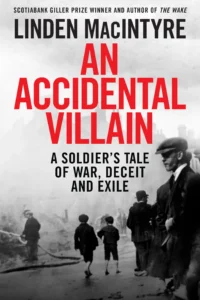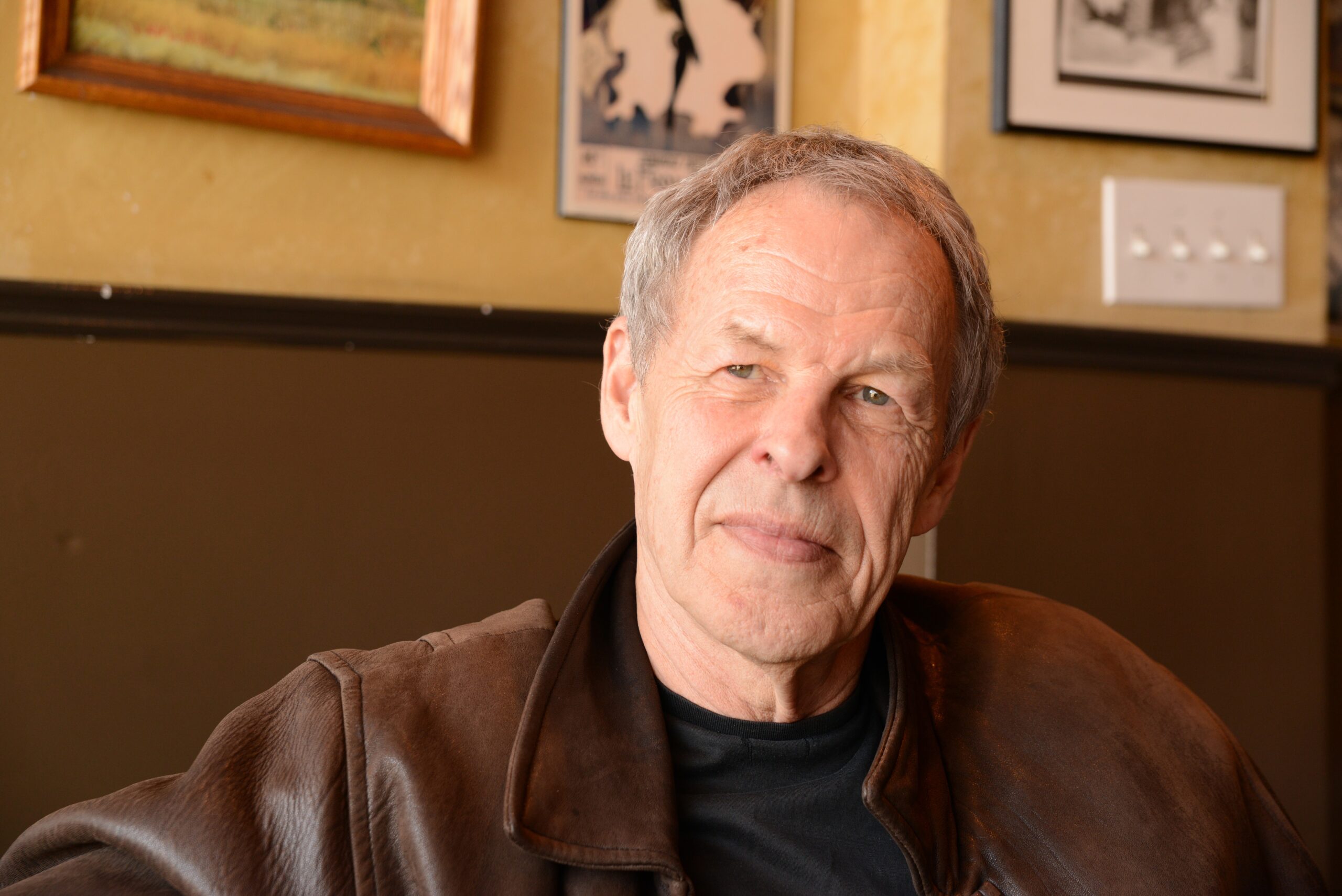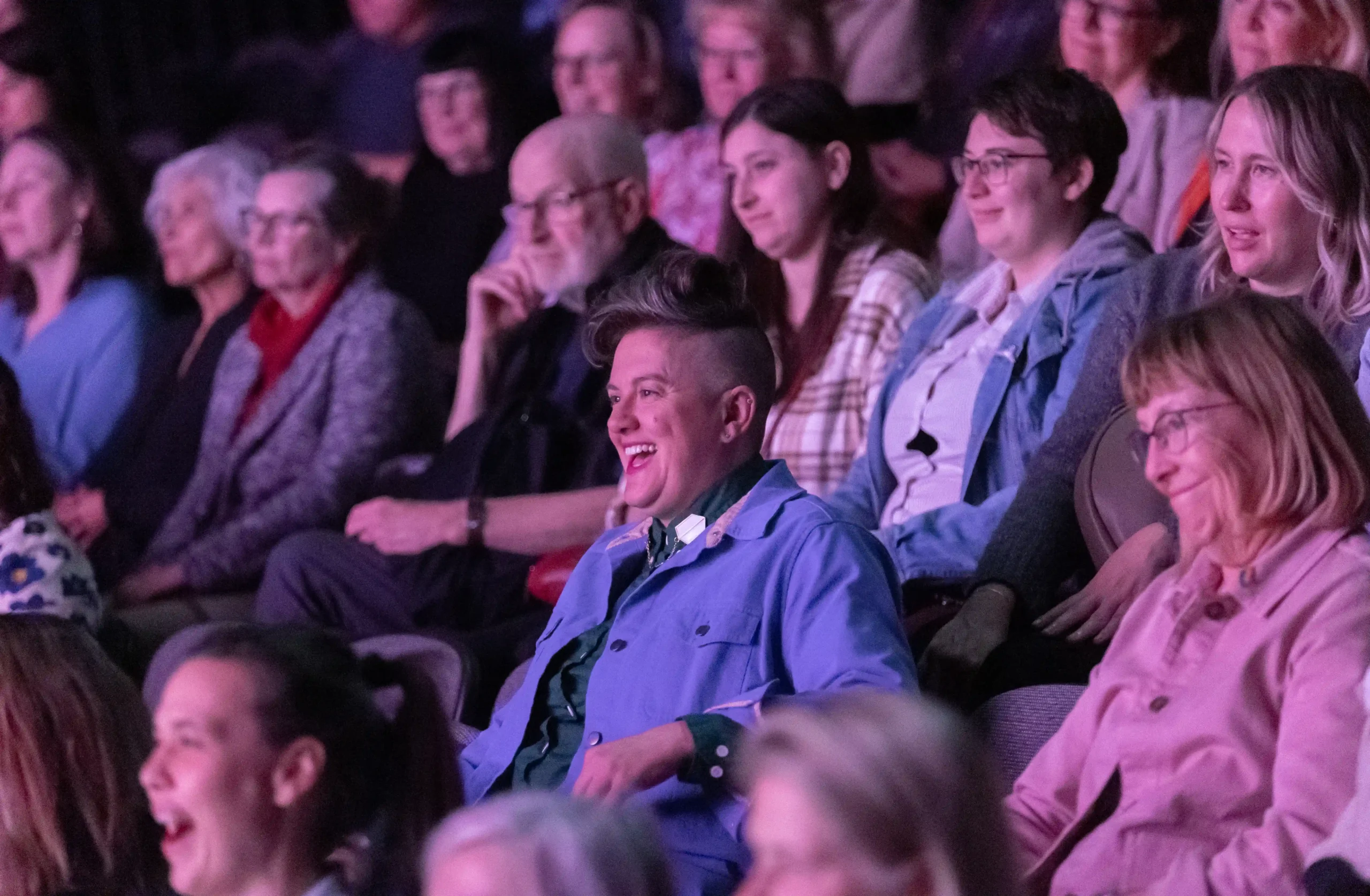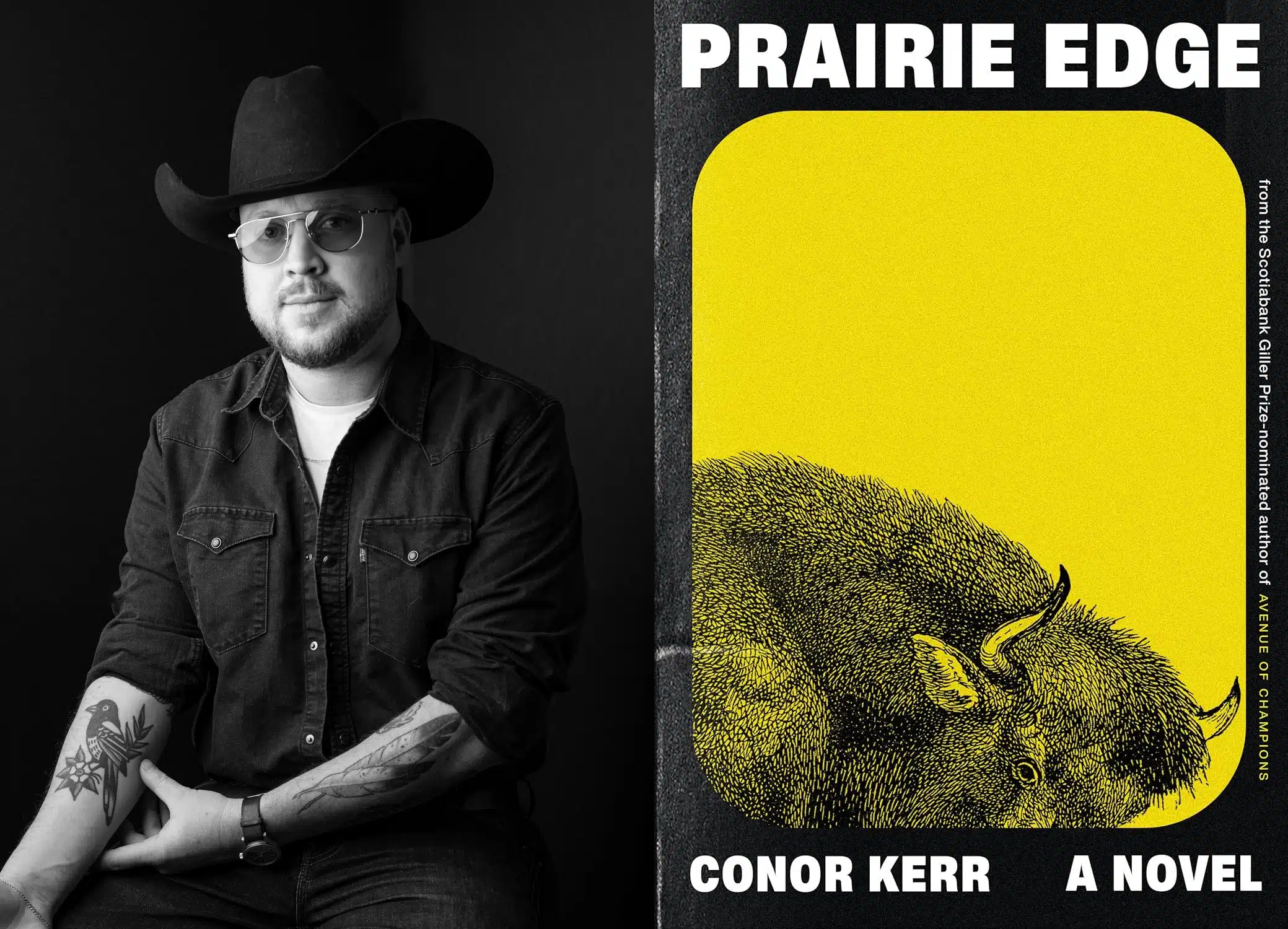For decades, Canadian audiences knew Linden MacIntyre as the face of The Fifth Estate, CBC’s investigative program. At 71, he stepped away from television to make room for a new generation of journalists — and to devote himself fully to writing.
His latest book, Accidental Villain, revisits one of the bloodiest chapters of Ireland’s history through the story of Henry Hugh Tudor, a British police commander.
Ahead of his Wordfest appearance here in Calgary, MacIntyre spoke with The Scene about storytelling, moral choices, and the lessons history leaves behind.

WHY THIS STORY?
“Nobody seemed to know much about [Hugh Tudor], and he was engaged in an extremely important part of 20th-century Irish history.
“As a leader of a conventional police force, he borrowed the tactics of his enemy and turned them against them. So suddenly, policemen are behaving like terrorists — murdering, torturing, and frightening people.
“This interested me because it’s now a common part of conflict — governments using terrorism as a weapon against terrorists. People in public positions — soldiers, police, bureaucrats — can end up being labelled villains, even when motivated by loyalty and duty. Duty and loyalty to the wrong cause will get you nowhere in history.”
RECURRING ‘ACCIDENTS’
“People become villains not because they want to be villains, but because they do things they believe are legitimate. Tudor saw the Irish uprising not as a freedom fight, but as a crime wave, as his superiors told him. He accidentally slid into behaviour that turned him into a villain.
“What happened in Ireland was subsequently copied elsewhere — Palestine, the Balkans, Latin America. The ugliness has continued through history.
“Powerful people will always seek to increase power and wealth at the expense of others. Historically, tragedies repeat — the 20th century had tragedies, now the 21st century has ‘fires’.
“One comfort of being old is that you won’t have to worry about it as much personally. I worry for future generations, but there’s nothing I can do to reverse what’s happening.”
LITERATURE IS HOPE
“There was no Canadian literary scene when I was young. It blossomed in the ’60s and ’70s, when public support encouraged talent. The diversity of arts and cultures is pretty new to my experience.
“I’ve been going to literary festivals a lot over the last 20–25 years, and it’s inspiring to see the extent to which they have a global reach — the number of talented people who come to these events not just to “show the flag” but because they genuinely appreciate Canadian stories.
“People who tell stories, and people who are interested in listening to them, are an actual bright spot in the world.”
“People who tell stories, and people who are interested in listening to them, are an actual bright spot in the world. They dedicate themselves to supporting the arts, and that gives us hope for the survival of the species, which is our ability to think about deep ideas, about each other, to solve problems.”
“Literature is hope. Music is hope. We tend to be blinded by the horrors of the headlines, and we can easily forget that the vast majority of human beings are not twisted or sick, they’re just people who want to get up through the day with a certain amount of satisfaction and security.”
LEAVING CBC
“I’d been at CBC a long time and was watching a whole generation of young people having a hard time getting a foothold. I figured if a couple of old people like me bail out, they’ll make room for new blood and new thinking.
“I felt comfortable with the decision because I could turn to book writing full-time. I’d already written five or six books, and they were successful enough that I could make a living doing it.
“When the clock ticks, you realize your time is running out. Changing careers requires confronting that. It’s not always thrilling; there’s a bit of fear, uncertainty, and awareness that life is not as long as you once thought.”
BETWEEN MEDIOCRE AND BRILLIANT
“Motivation has to come from inside yourself. My objective is to produce a book people consider good, not necessarily brilliant. Success and fame come from circumstances outside your control. My work is somewhere on the continuum between mediocre and brilliant, and there’s a place for everybody.
“My work is somewhere on the continuum between mediocre and brilliant, and there’s a place for everybody.”
“As long as you have mobility, clarity, and curiosity about life and the world, there’s no reason not to find some way to make yourself useful.”
“PLEASE, BAN MY BOOK!”
“The funny thing is, banning a book can actually make it more popular. Every writer deep down thinks, ‘Please, ban my book!’
“One of the stupid mistakes is trying to stop people from accessing what they legitimately want: exposure to good ideas, to earn a living without hassle, to live peacefully. Messing with that creates situations that no one in power can easily survive.
“Explore history — of the world, of culture — to see where things went right and wrong. And write about it truthfully, whether as academics or artists.
“I don’t have a lot of faith in fantasy — it’s in our past experiences you’ll find the greatest evidence of whatever it’s going to take to get us through into the future.
“The ability of people to tell stories should not be taken for granted, as we may very well be moving into an era in which propaganda becomes the principal story.”
Linden MacIntyre appears at Wordfest in three events:
- The Way We … Talk About Monsters — Oct 16, 7:30 PM, DJD Dance Centre
- Othering & Empathy — Oct 18, 7:30 PM, Memorial Park Library
- How To … Extend Your Shelf Life — Oct 19, 1:00 PM, DJD Dance Centre
Find details and tickets at wordfest.com.



